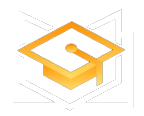Education is undergoing a profound transformation on a global scale, driven by rapid advancements in technology, shifting socio-economic dynamics, and evolving educational philosophies.
From the rise of online learning to the growing emphasis on skills-based education, educators and policymakers around the world are grappling with a myriad of challenges and opportunities as they seek to prepare students for success in the 21st century.
In this article, we’ll explore some of the key trends shaping the future of education and provide insights into the changing landscape of learning on a global scale.
1 Rise of Online Learning:

One of the most significant trends in global education is the rise of online learning, driven by advancements in technology and the increasing demand for flexible and accessible education options. Online learning platforms, such as Coursera, Udemy, and Khan Academy, offer a wide range of courses and resources covering diverse subjects, from computer science and business to humanities and the arts.
These platforms provide learners with the flexibility to study at their own pace, access high-quality educational content from anywhere in the world, and acquire new skills and knowledge to enhance their personal and professional development.
2 Blended Learning Models:
Blended learning, which combines traditional face-to-face instruction with online learning components, has become increasingly popular in schools and educational institutions worldwide.
Blended learning models offer the best of both worlds, providing students with the opportunity for personalized, self-paced learning while also allowing for valuable in-person interactions with teachers and peers.
By integrating technology into the classroom, educators can create more engaging and interactive learning experiences that cater to the diverse needs and learning styles of students.
3 Skills-Based Education:
In response to the changing needs of the workforce and the increasing demand for job-ready skills, there has been a growing emphasis on skills-based education across the globe. Rather than focusing solely on academic knowledge, educators are placing greater importance on developing practical, real-world skills such as critical thinking, problem-solving, communication, and collaboration.
Skills-based education equips students with the tools they need to succeed in today’s rapidly evolving job market and prepares them for the challenges and opportunities of the future.
4 Project-Based Learning:
Project-based learning (PBL) has emerged as a powerful pedagogical approach that emphasizes hands-on, experiential learning and encourages students to explore real-world problems and issues. In PBL classrooms, students work collaboratively on projects that are relevant, meaningful, and aligned with their interests and passions.
By engaging in authentic, project-based tasks, students develop essential 21st-century skills such as creativity, critical thinking, and teamwork while also deepening their understanding of core academic concepts. PBL fosters a love of learning, encourages curiosity and inquiry, and prepares students for success in an increasingly complex and interconnected world.
5 Personalized Learning Pathways:

Personalized learning, which tailors instruction and learning experiences to the individual needs, interests, and abilities of each student, is gaining traction as a key trend in global education. Adaptive learning technologies and data-driven insights enable educators to customize instruction, provide targeted support and interventions, and empower students to take ownership of their learning journey.
By personalizing learning pathways, educators can meet students where they are, address their unique strengths and weaknesses, and ensure that every learner has the opportunity to reach their full potential.
6 Focus on Social and Emotional Learning:
In addition to academic knowledge and skills, there is growing recognition of the importance of social and emotional learning (SEL) in education. SEL focuses on developing students’ social awareness, self-management, relationship skills, and responsible decision-making abilities.
By fostering empathy, resilience, and emotional intelligence, SEL prepares students to navigate life’s challenges, build healthy relationships, and thrive in diverse social and cultural contexts. Educators are incorporating SEL into curriculum and instruction, creating supportive and inclusive learning environments, and equipping students with the social and emotional competencies they need to succeed in school and beyond.
As we look to the future of education, it is clear that the landscape of learning is undergoing a profound transformation on a global scale. From the rise of online learning and blended learning models to the growing emphasis on skills-based education, personalized learning pathways, and social and emotional learning, educators and policymakers are embracing innovative approaches to meet the diverse needs of students and prepare them for success in the 21st century.
By staying informed about emerging trends and best practices in education, we can work together to create a more equitable, inclusive, and empowering learning environment for learners around the world.
![]()



